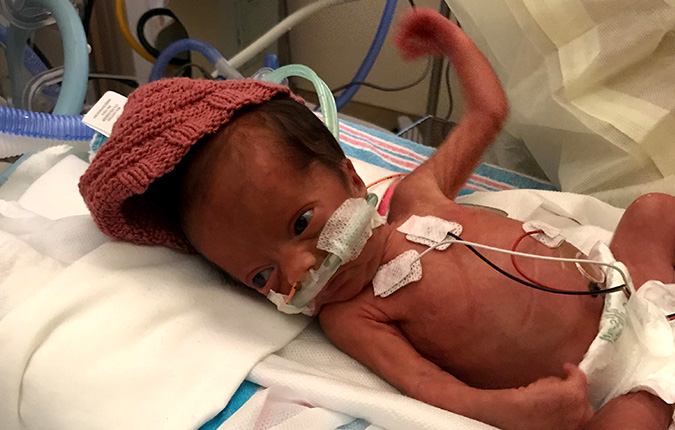Treatment
Pediatric Cardiac MRI
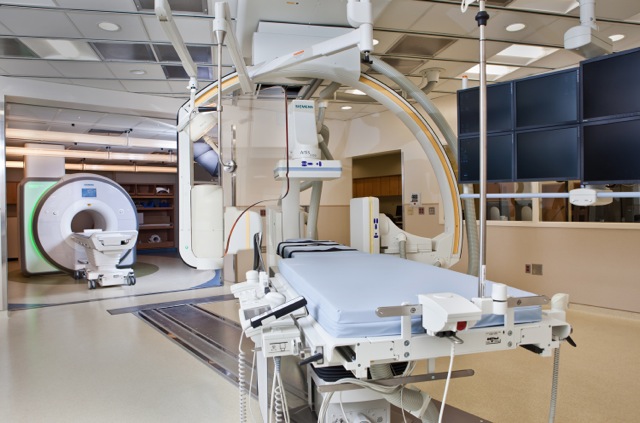 A magnetic resonance imaging scan of the heart, called cardiac MRI, is an important tool for diagnosing and even treating congenital heart disease. In the hybrid cardiac MRI suite at Children's National Hospital, we are able to perform MRI and a catheterization procedure at the same time. This reduces the amount of sedation your child needs.
A magnetic resonance imaging scan of the heart, called cardiac MRI, is an important tool for diagnosing and even treating congenital heart disease. In the hybrid cardiac MRI suite at Children's National Hospital, we are able to perform MRI and a catheterization procedure at the same time. This reduces the amount of sedation your child needs.
Frequently Asked Questions
What is cardiac MRI?
Cardiac MRI is a noninvasive imaging procedure that uses magnetic technology, not radiation, to create detailed images of the heart. The procedure provides your child’s heart team with high-resolution images of the moving heart and blood vessels, so we can see how the heart looks and functions.
At Children’s National Heart Institute, our specialized hybrid MRI suite combines MRI and cardiac catheterization, allowing us to obtain detailed diagnostic images and perform cardiac catheterizations in the least invasive, safest way possible.
In a partnership with the National Heart, Lung, and Blood Institute, part of the National Institutes of Health, we're also enhancing the safety of imaging through MRI. The joint team’s work will translate clinically to more streamlined use of MRI, which is radiation-free. The initiative seeks to enhance the speed and quality of MRI machines and reduce the need to sedate children getting an MRI; increasing the capability of MRI to take fetal images; developing better, pediatric-specific catheters for probing the heart and blood vessels; and incorporating an incubator into an MRI scanner to enable procedures on premature babies. Read more about this partnership's work.
What can my child and I expect at the Hybrid Cardiac MRI Suite at Children’s National?
Our heart team is pioneering new ways to harness the power of MRI, so we can provide you with the safest, most effective diagnosis and treatment possible. In our hybrid suite, we combine the powerful imaging technology of an MRI with the precision and detail of the catheterization lab.
Features of our cardiac MRI hybrid suite include:
- Minimal exposure to radiation. Traditional cardiac catheterization uses radiation. While we always use the lowest dose possible, we are working to minimize radiation exposure even more. By using MRI technology to guide a catheterization procedure, we are able to obtain detailed images with minimal or no radiation exposure.
- 3-D images. The 3-D MRI technology allows us to take the images we get from the MRI study and view them from every angle. This gives us more information about your child’s condition, helping us treat him or her even better.
- Specialized team. Our team consists of pediatric specialists who have dedicated their careers to pediatric heart care. Our experienced cardiac MRI technologists have extensive training in pediatric cardiac imaging. While many heart programs are adult-centered and may also treat children, our focus is entirely on treating infants, children, and adolescents.
- Convenient. If your child needs both an MRI and a catheterization procedure, we may be able to perform them at the same time if your child meets certain criteria. This reduces the amount of sedation your child needs.
- Comprehensive evaluation. Echocardiography, an ultrasound for the heart, is a popular, safe diagnostic tool. However, as children get physically bigger, the echo may be less effective. We use cardiac MRI extensively for adolescents and adults with congenital heart disease because it offers the most comprehensive, detailed evaluation available.
- Next level of cardiac care. Our team continues to investigate and advance the field of cardiac imaging. We are one of the few hospitals in the world working on capabilities that will allow us to do cardiac interventional procedures in the MRI suite. This will lead to the most minimally invasive and effective procedure for your child.
Which children need Cardiac MRI?
We use cardiac MRI to diagnose congenital heart defects and provide noninvasive evaluation for complex conditions, such as:
- Tetralogy of Fallot
- Coarctation of the aorta, a narrowing of the aorta
- Certain rhythm abnormalities (arrhythmias)
- Cardiomyopathies, diseases of the heart muscle
- Single ventricle defects, a condition affecting one of the lower chambers of the heart
How is cardiac MRI performed in children?
While every patient differs, here’s a general idea of what you can expect on the day of the procedure:
- Before your child’s MRI, we will discuss the procedure with you in detail. We encourage you to ask any questions you may have. We will also discuss with you if we are using contrast during the MRI, a material that helps us visualize your child’s heart better.
- Your child may need sedation, depending on their age and ability to lie still. Parents can wait in the waiting room with a pager, so we can let you know when the procedure is finished.
- If your child will not be receiving sedation, one parent can be in the room (unless the parent has a health concern that would make it unsafe).
- We perform the MRI, which takes 45-60 minutes.
- We discuss the results with you.
What is cardiac MRI?
Cardiac MRI is a noninvasive imaging procedure that uses magnetic technology, not radiation, to create detailed images of the heart. The procedure provides your child’s heart team with high-resolution images of the moving heart and blood vessels, so we can see how the heart looks and functions.
At Children’s National Heart Institute, our specialized hybrid MRI suite combines MRI and cardiac catheterization, allowing us to obtain detailed diagnostic images and perform cardiac catheterizations in the least invasive, safest way possible.
In a partnership with the National Heart, Lung, and Blood Institute, part of the National Institutes of Health, we're also enhancing the safety of imaging through MRI. The joint team’s work will translate clinically to more streamlined use of MRI, which is radiation-free. The initiative seeks to enhance the speed and quality of MRI machines and reduce the need to sedate children getting an MRI; increasing the capability of MRI to take fetal images; developing better, pediatric-specific catheters for probing the heart and blood vessels; and incorporating an incubator into an MRI scanner to enable procedures on premature babies. Read more about this partnership's work.
What can my child and I expect at the Hybrid Cardiac MRI Suite at Children’s National?
Our heart team is pioneering new ways to harness the power of MRI, so we can provide you with the safest, most effective diagnosis and treatment possible. In our hybrid suite, we combine the powerful imaging technology of an MRI with the precision and detail of the catheterization lab.
Features of our cardiac MRI hybrid suite include:
- Minimal exposure to radiation. Traditional cardiac catheterization uses radiation. While we always use the lowest dose possible, we are working to minimize radiation exposure even more. By using MRI technology to guide a catheterization procedure, we are able to obtain detailed images with minimal or no radiation exposure.
- 3-D images. The 3-D MRI technology allows us to take the images we get from the MRI study and view them from every angle. This gives us more information about your child’s condition, helping us treat him or her even better.
- Specialized team. Our team consists of pediatric specialists who have dedicated their careers to pediatric heart care. Our experienced cardiac MRI technologists have extensive training in pediatric cardiac imaging. While many heart programs are adult-centered and may also treat children, our focus is entirely on treating infants, children, and adolescents.
- Convenient. If your child needs both an MRI and a catheterization procedure, we may be able to perform them at the same time if your child meets certain criteria. This reduces the amount of sedation your child needs.
- Comprehensive evaluation. Echocardiography, an ultrasound for the heart, is a popular, safe diagnostic tool. However, as children get physically bigger, the echo may be less effective. We use cardiac MRI extensively for adolescents and adults with congenital heart disease because it offers the most comprehensive, detailed evaluation available.
- Next level of cardiac care. Our team continues to investigate and advance the field of cardiac imaging. We are one of the few hospitals in the world working on capabilities that will allow us to do cardiac interventional procedures in the MRI suite. This will lead to the most minimally invasive and effective procedure for your child.
Which children need Cardiac MRI?
We use cardiac MRI to diagnose congenital heart defects and provide noninvasive evaluation for complex conditions, such as:
- Tetralogy of Fallot
- Coarctation of the aorta, a narrowing of the aorta
- Certain rhythm abnormalities (arrhythmias)
- Cardiomyopathies, diseases of the heart muscle
- Single ventricle defects, a condition affecting one of the lower chambers of the heart
How is cardiac MRI performed in children?
While every patient differs, here’s a general idea of what you can expect on the day of the procedure:
- Before your child’s MRI, we will discuss the procedure with you in detail. We encourage you to ask any questions you may have. We will also discuss with you if we are using contrast during the MRI, a material that helps us visualize your child’s heart better.
- Your child may need sedation, depending on their age and ability to lie still. Parents can wait in the waiting room with a pager, so we can let you know when the procedure is finished.
- If your child will not be receiving sedation, one parent can be in the room (unless the parent has a health concern that would make it unsafe).
- We perform the MRI, which takes 45-60 minutes.
- We discuss the results with you.

Cardiac Imaging at Children's National Hospital
Our heart experts have expertise in the full spectrum of cardiac imaging, including transesophageal, prenatal, 3-D, intracardiac, and stress echocardiography and cardiac MRI. Discover more about the procedures we offer.

Providers of Cardiac MRI

Michelle Lauren Udine, MD
- Advanced Imaging Cardiologist
- Cardiologist
- Senior Vice President
- Chief Financial Officer
Jul 22, 2024
Helping Maddie to Live Life to the FullestMaddie is a lively, creative teen who loves to act. Research at Children's National Hospital helps to ensure that her rare disease doesn"t upstage her big theater plans or her love of life.
Jun 27, 2024
Convenient Care for CharlotteWhen Charlotte was a toddler, a respiratory illness led to a diagnosis of a rare and dangerous immune deficiency called ICF syndrome. A bone marrow transplant at age 5 at Children’s National helped save her life.
May 20, 2024
Omid Conquers Fear with MusicOmid never liked going to the dentist. Dr. Aleger changed that with a little trust, and his favorite tunes.
Departments that Offer Cardiac MRI
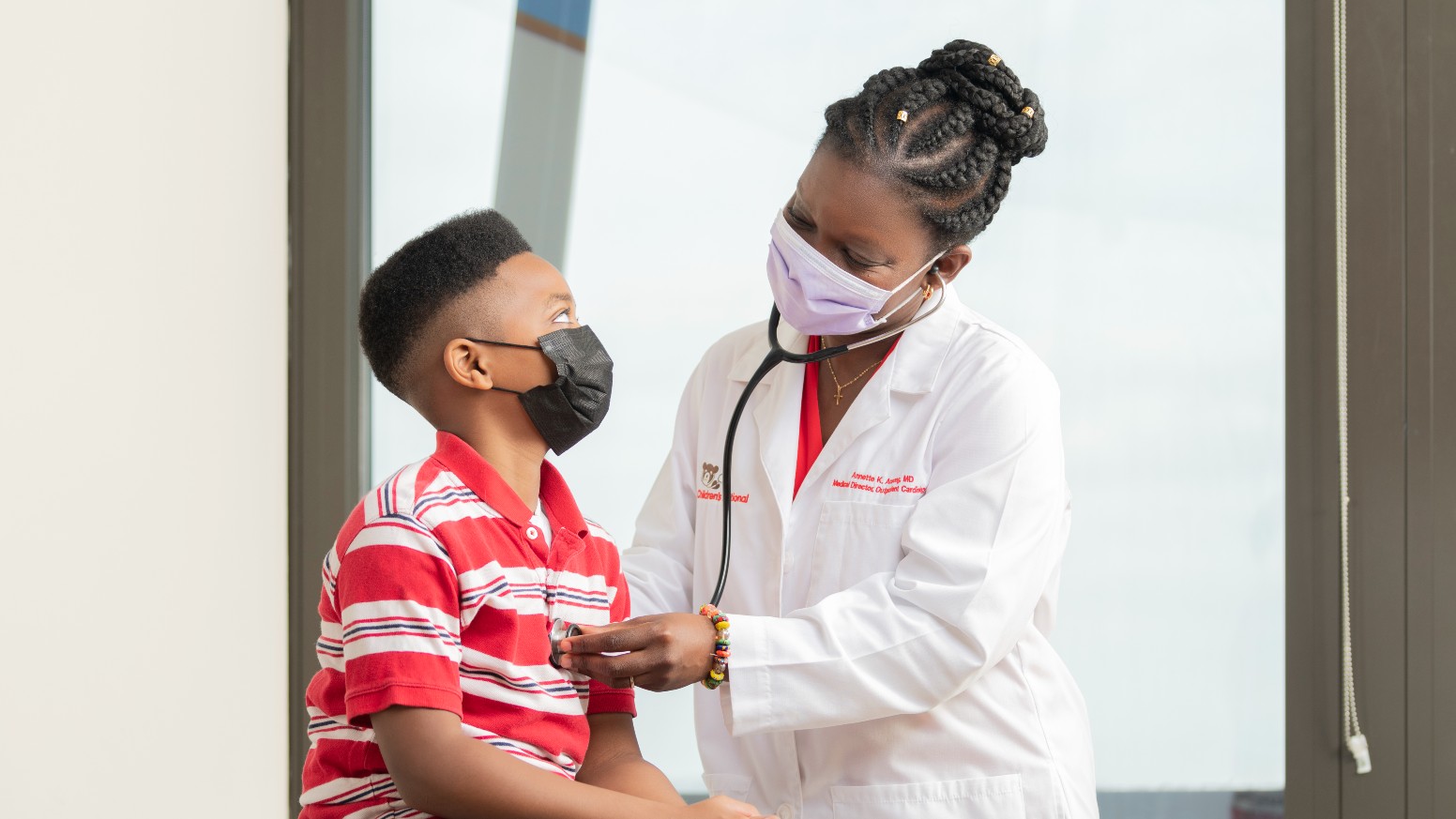
Pediatric Cardiac Surgery
Our pediatric heart surgery team performs twice the number of surgeries of any other hospital in the region, with some of the best outcomes in the nation.
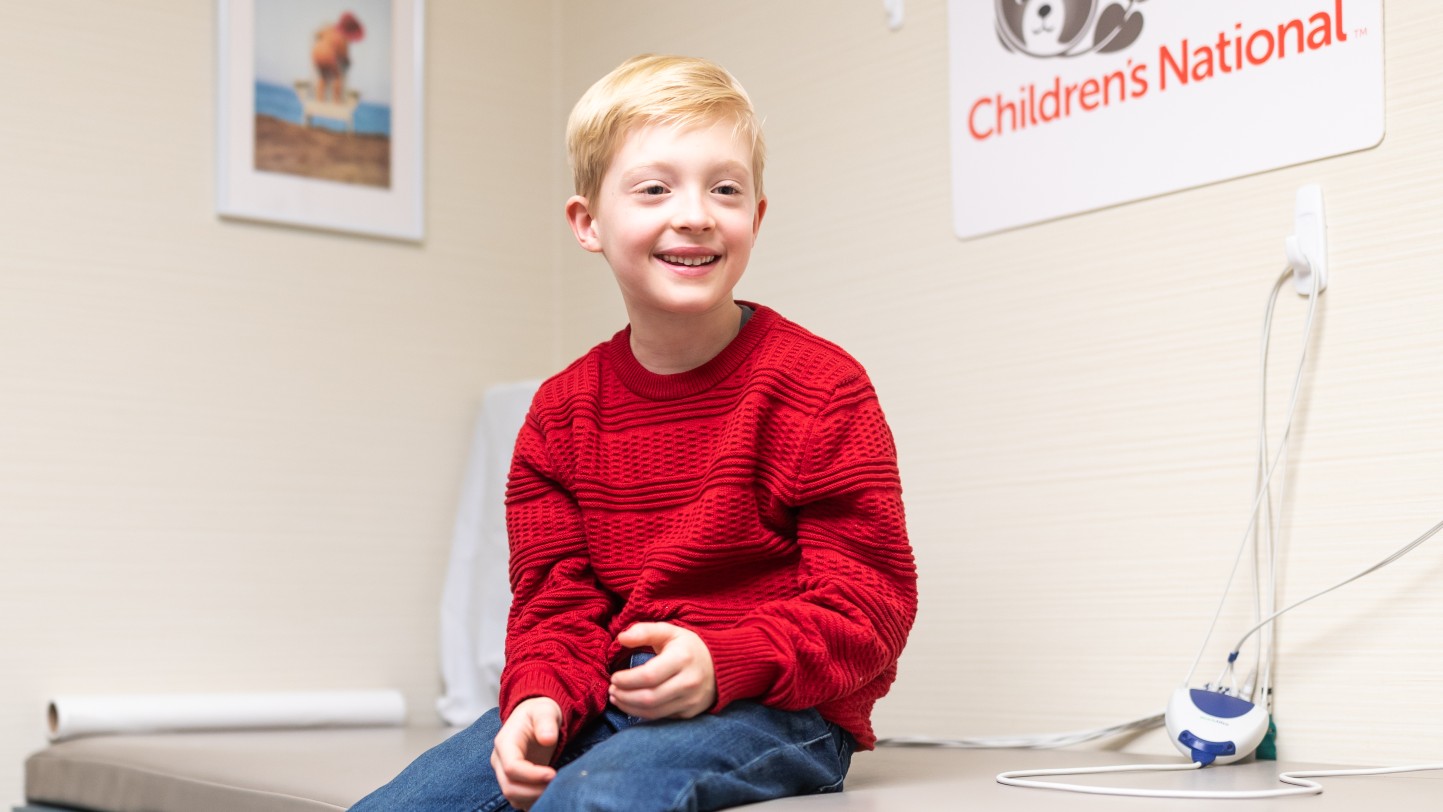
Cardiology
The pediatric heart experts at Children’s National Hospital in Washington, D.C., provide advanced care for unborn babies, children and young adults with heart conditions.
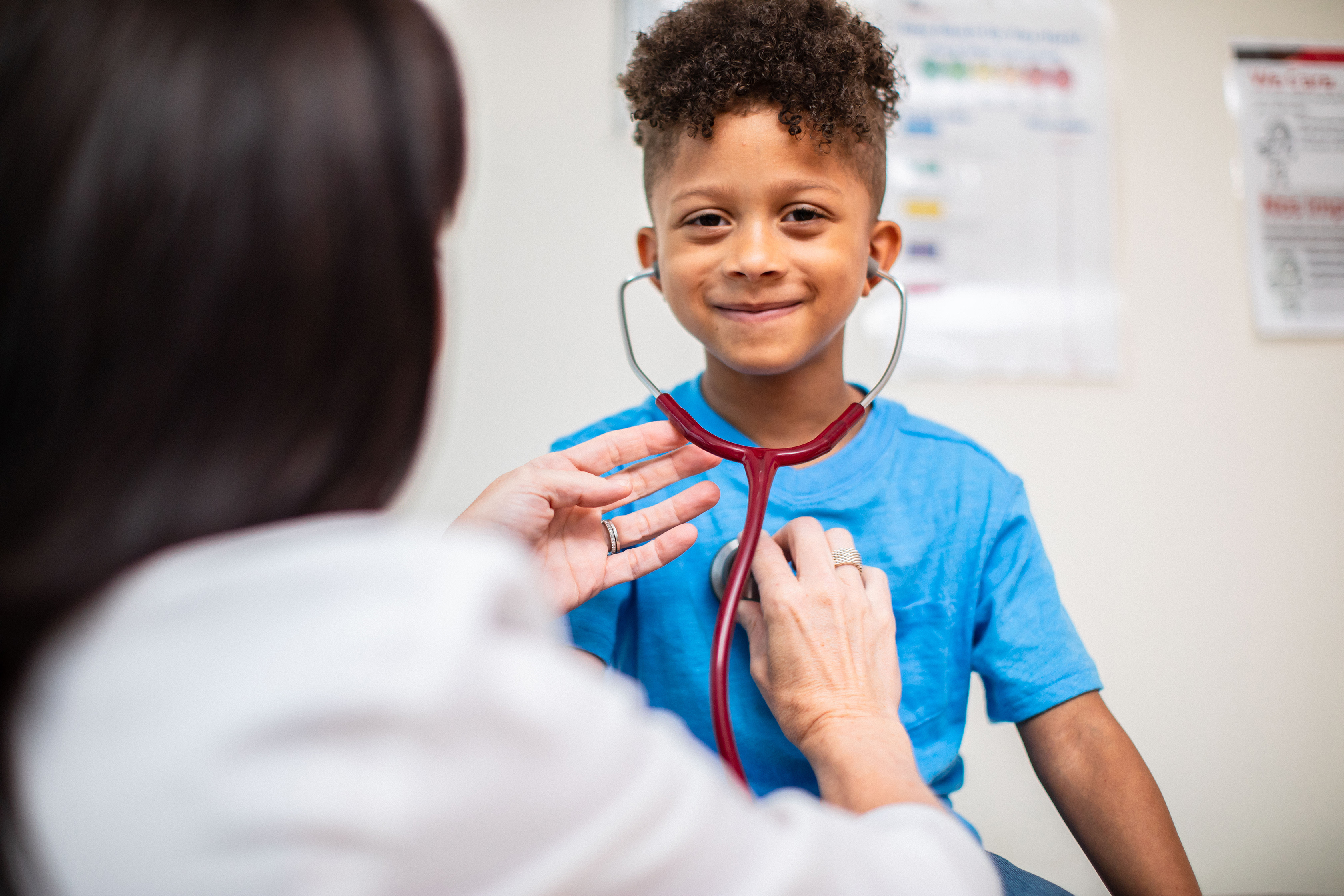
Cardiac Imaging
We have expertise in the full spectrum of cardiac imaging, including transesophageal, prenatal, 3-D, intracardiac, and stress echocardiography and cardiac MRI.
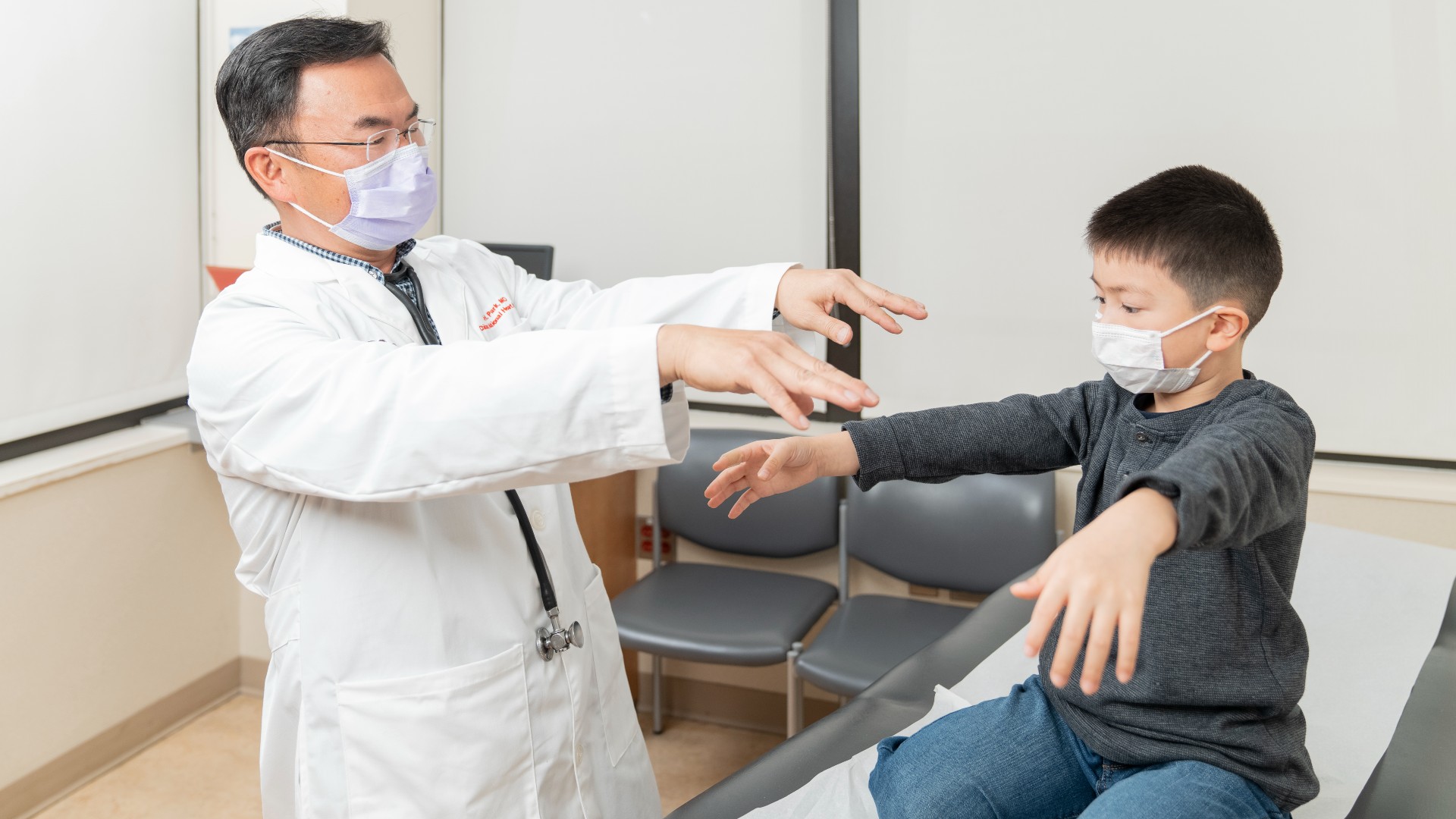
Children's National Heart Institute
Our expert pediatric heart team, including more than 40 subspecialties, offer advanced heart care and excellent outcomes for thousands of children every year.
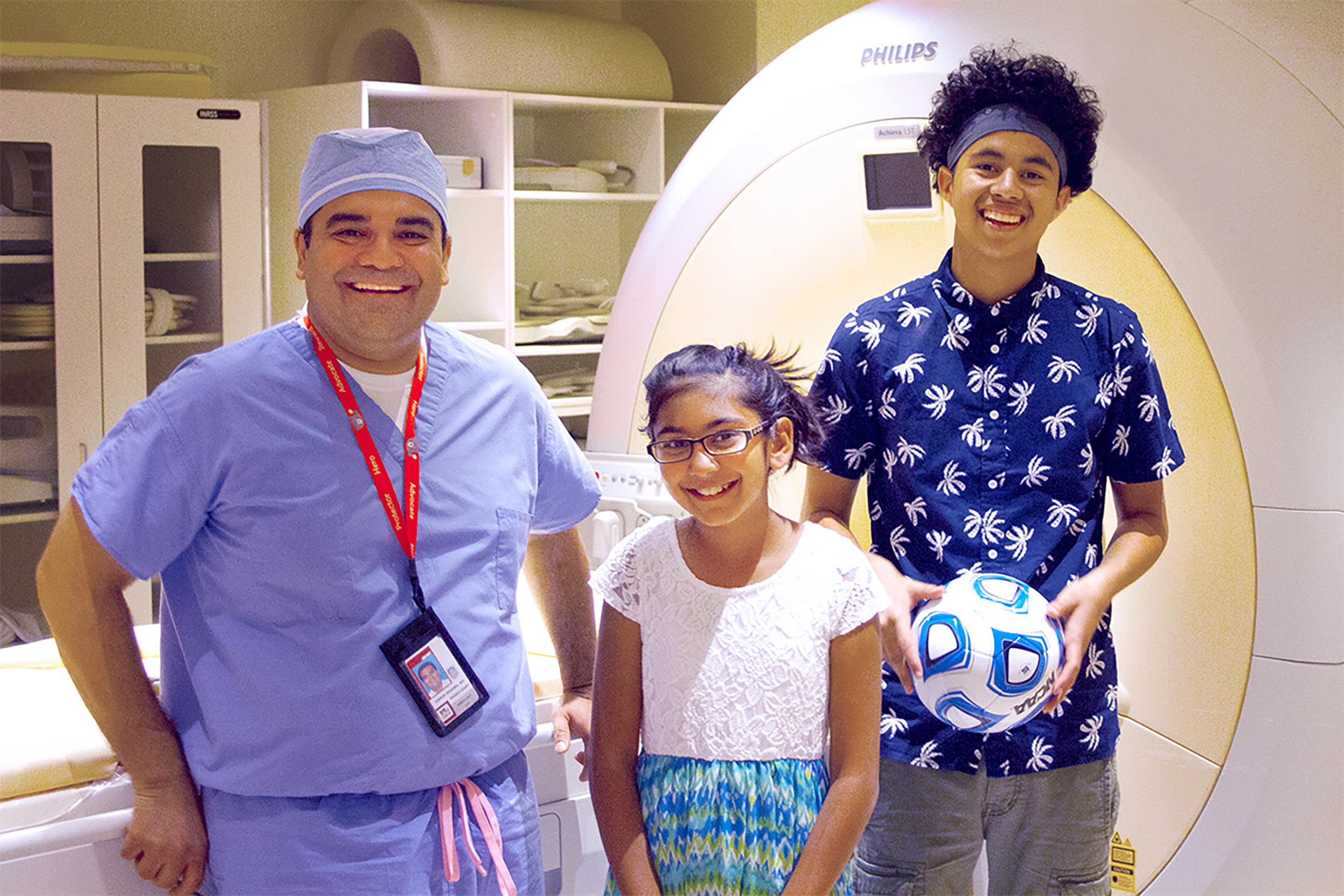
Diagnostic Imaging and Radiology
The Division of Diagnostic Imaging and Radiology has a team of expert physicians, board-certified pediatric radiologists, technologists, pediatric anesthesiologists and nurses, specially trained to provide pediatric radiology services for infants, children and adolescents.





